The German Language Series: Part II - The Variations and Similarities Between the English and German Language
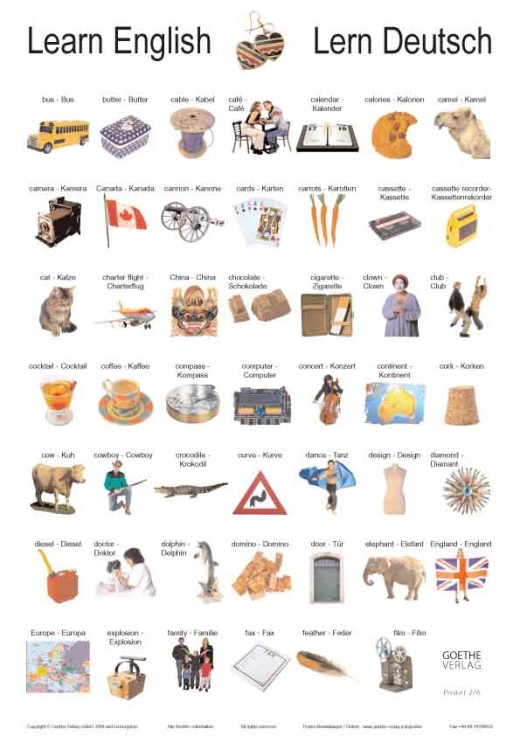
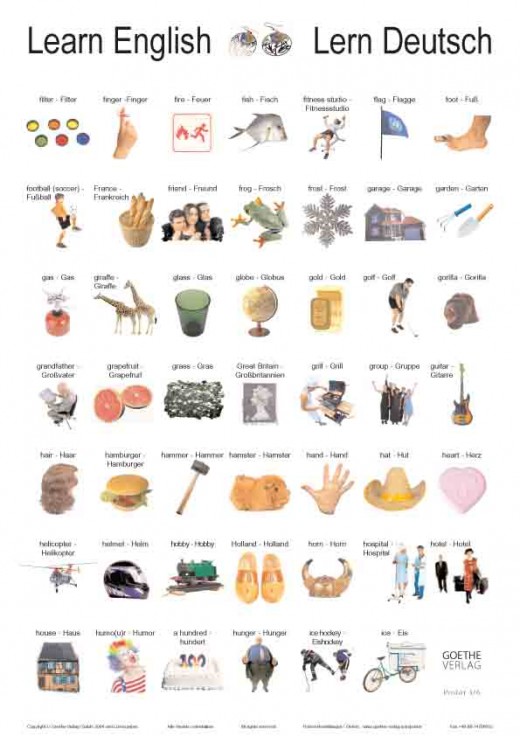
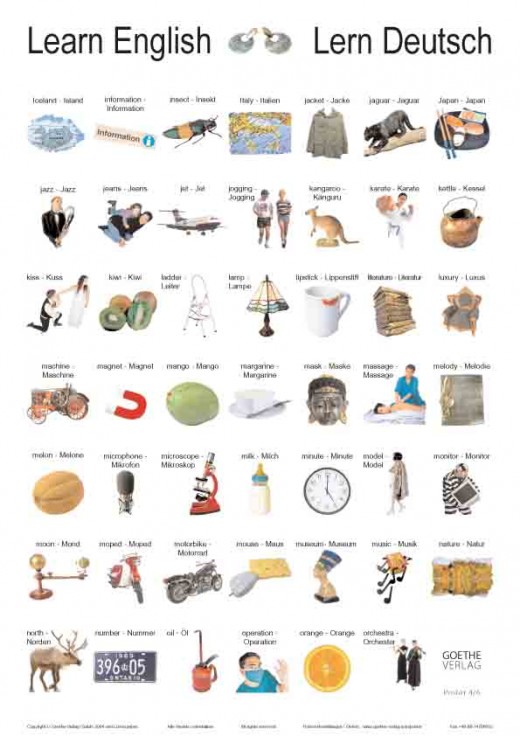
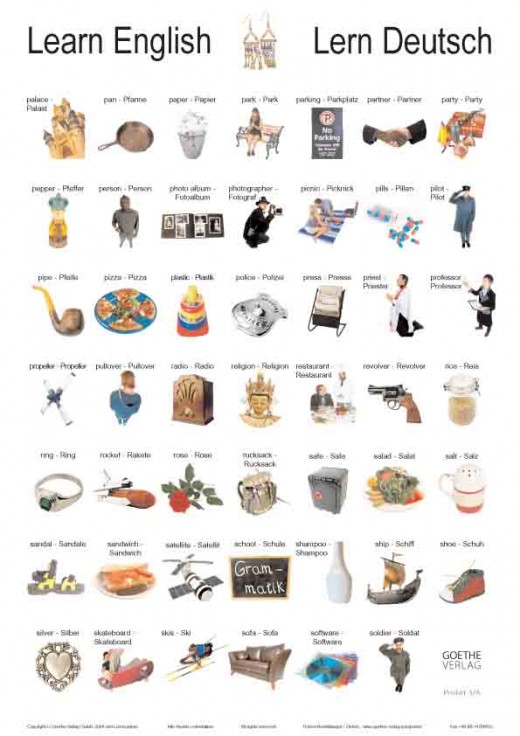
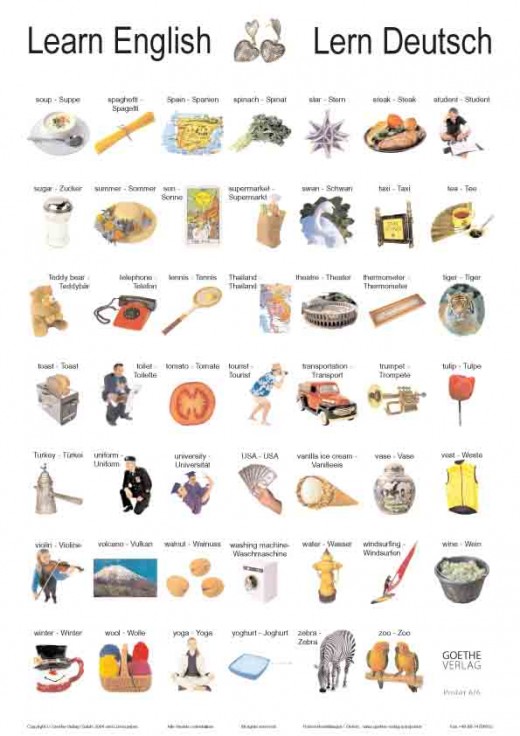
While Part I of the German Language Series highlighted the German roots of multiple English words (another image is provided below of these cognates), this section is intended to touch on additional similarities, mainly concentrated around grammar. The differences mentioned below will be touched on with each successive hub of this series.
As far as similarities are concerned, the most obvious may be that both German and English utilize the Latin alphabet. Beyond this given, the syntax also generally follows the subject-verb order, with the indirect object falling before the direct object.
E.g. Ich gab meine Freundin das Buch.
In English, this sentence translates as "I gave my friend the book". In this sentence, "Ich" serves as the subject, "gab" as the verb, "meine Freundin", a feminine noun, as the indirect object, and "das Buch", a neuter noun, as the direct object.
Both languages also feature nouns, pronouns, verbs, adverbs, adjectives, prepositions, interjections, and conjunctions.
The differences between German and English are a bit more extensive, but easy to learn and manage. One of the most evident variations is the fact that each noun has a gender, being either masculine, feminine, or neuter (der, die, das, respectively). The endings of adjectives respond solely to the form of the noun which they modify.
E.g. Der guter Man. A good man.
Die schöne Frau. The pretty woman.
Das altes Haus. The old house.
All nouns are also capitalized, regardless of whether or not the word is considered a pronoun. German additionally features many more verb forms than English and does not utilize helping verbs.
E.g. der Junge (the boy),die Blume (the flower), das Mädchen (the girl)
Punctuation follows much stricter rules in German, as do manners in which to address individuals (either formal or informal).
E.g. Sie hat ein Buch gekauft. "Sie" is the formal way to address another.
Du hast ein Buch gekauft. "Du" is the informal way to refer to another.
Again, each point mentioned above will be explored in further hubs. This should serve simply as an introduction.








